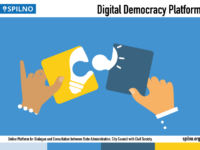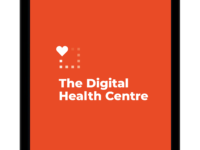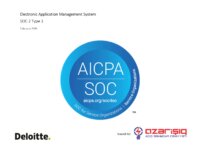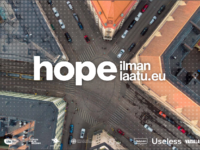The project improves quality of life for people with a chronical illness by developing and integrating digital solutions in the education of patients. It supplements the physical training but replaces the traditional education in a health centre and offers patients a far more flexible solution. Patients can participate in webinars from home and chat with healthcare professionals and other patients. The use of digital solutions results in both resource optimization and patient empowerment.
Innovation Tag: Digital and Technology Transformation
Minha Vitória: a collaborative platform to share suggestions for Urban Planning with the aim of reviewing and regulating the urban aspects of Vitória, Brazil for the next ten years.
Urban Master Planning is a municipal law that establishes rules for the growth and functioning of the city. For the first time in the state of Espirito Santo, the dwellers were also able to make suggestions over the internet through a democratic and participatory process.
"Defensores" is a platform designed to provide public defenders with a tool to register allegations of torture. This project was carried out in partnership with two key actors in the subject: The Ministry of Public Defense (MDP) and the National Mechanism for Prevention against Torture (MNP). Its implementation facilitates the effective and permanent monitoring of torture by public defenders and generates qualified information for different institutions and society in general. It's the first…
New Zealand has developed the Emergency Caller Location Information (ECLI) Service. The Service enables Public Safety Organisations (PSOs) to receive automatically generated geographical information about the location of a caller when an emergency call is connected to a mobile cellular network, from any mobile device. ECLI saves lives by decreasing the time taken to verify location and reduce the average dispatch time to incidents, with controls in place to protect callers’ personal…
The "miDGT" mobile app allows citizens to carry a digital version of their driving license and vehicle's registration and technical certificates, as well as receive alerts and news of interest, make payments of fines or taxes and access digital services.
It is the first time a digital mobile driving license or registration certificate is issued in Spain, and it helps create an ecosystem for personalized mobile services for citizens to interact with, thus simplifying bureaucratic procedures.
Case Study
SPILNO – digital democracy platforms for citizens, organizations and government institutions

SPILNO is a participatory digital democracy platform for citizens, organizations and local governments. It was created to improve communication of active citizens, acceleration of ideas, initiatives, implementation of socially important projects. A platform of interaction between government and community through the tools of e-democracy.
Digital Lithuania Academy is an online learning platform that aims to guide the country’s public sector through the digital transformation. It seeks to immerse public servants in digital practices relevant to their work, and upgrade their professional profiles through a highly personalized learning pathway. By becoming increasingly tech-savvy, public servants have the chance to vastly increase their efficiency, find innovative ways of working, and deliver better public services to citizens.
Governments are facing increasingly complex problems and do not have a repeatable approach for creating solutions that meet citizens needs. Lightning Lab GovTech is a three month government accelerator programme that takes government teams through a six stage innovation process of problem discovery, solution co-design, market validation and technology integration. Through LLGovTech, government departments can create more innovative, efficient and effective solutions to better serve citizens.
“Azerishiq” OJSC has created an innovative and enhanced e-service for providing electricity of up to 150 kilowatts to the existing or under-construction buildings of entrepreneurs. As a result of these reforms, entrepreneurs will be able to apply for an electricity connection through the One Window system online by visiting https://www.e-gov.az/en/login/?return=/az/services/readwidenew/3774/ website and the entrepreneur’s business will be provided with electricity within 20 days.
This air quality monitoring network in Helsinki region provides information from locations of fixed monitoring stations but the network consists currently of only few monitoring locations. The project aims to produce comprehensive hyper-local air quality monitoring network including crowdsourcing portable monitors that gives citizens air quality information of the exposure to air pollution in places where they live and they travel in the city. The main beneficiaries are therefore the citizens of…






